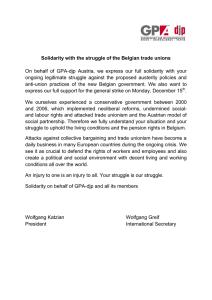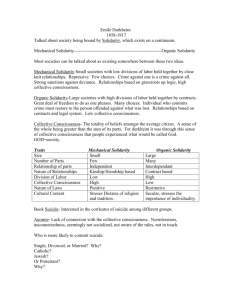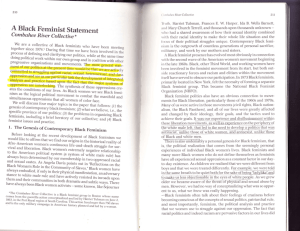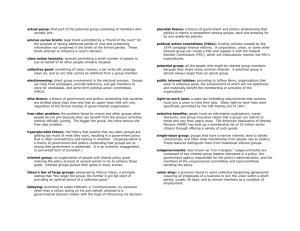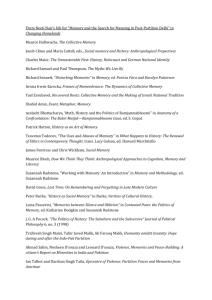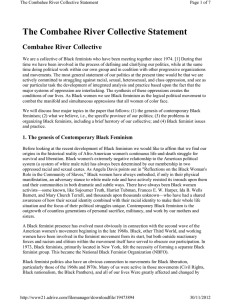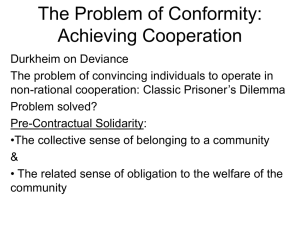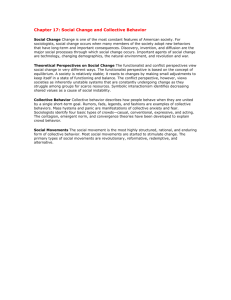Excerpt from Combahee River Collective Statement (1977) We are
advertisement
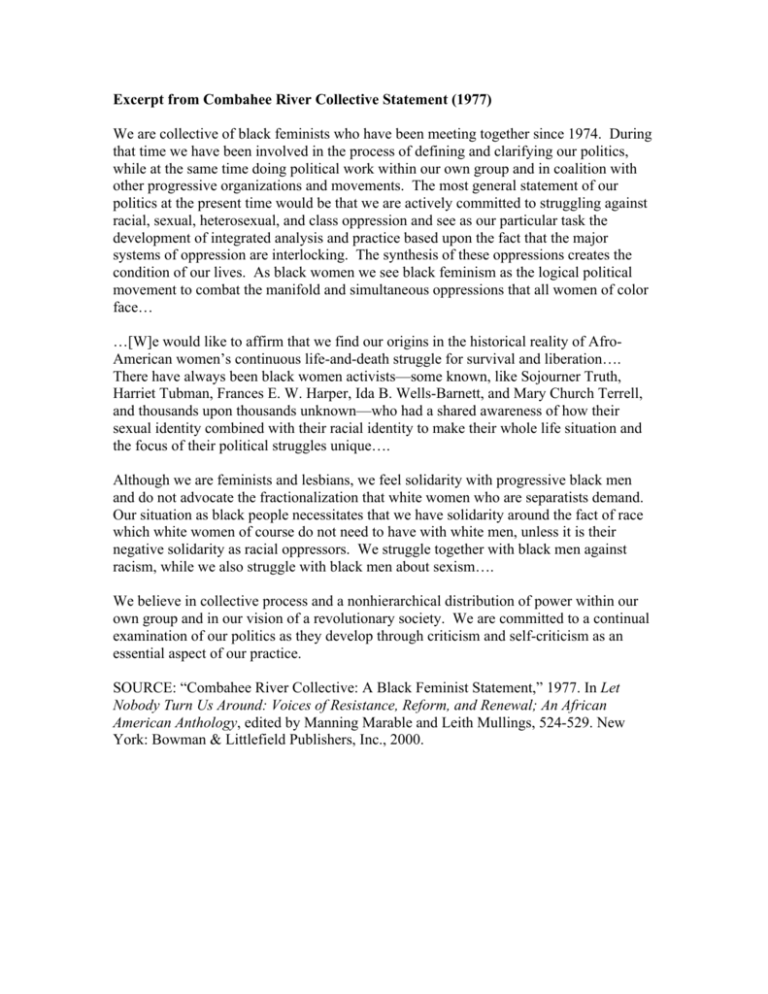
Excerpt from Combahee River Collective Statement (1977) We are collective of black feminists who have been meeting together since 1974. During that time we have been involved in the process of defining and clarifying our politics, while at the same time doing political work within our own group and in coalition with other progressive organizations and movements. The most general statement of our politics at the present time would be that we are actively committed to struggling against racial, sexual, heterosexual, and class oppression and see as our particular task the development of integrated analysis and practice based upon the fact that the major systems of oppression are interlocking. The synthesis of these oppressions creates the condition of our lives. As black women we see black feminism as the logical political movement to combat the manifold and simultaneous oppressions that all women of color face… …[W]e would like to affirm that we find our origins in the historical reality of AfroAmerican women’s continuous life-and-death struggle for survival and liberation…. There have always been black women activists—some known, like Sojourner Truth, Harriet Tubman, Frances E. W. Harper, Ida B. Wells-Barnett, and Mary Church Terrell, and thousands upon thousands unknown—who had a shared awareness of how their sexual identity combined with their racial identity to make their whole life situation and the focus of their political struggles unique…. Although we are feminists and lesbians, we feel solidarity with progressive black men and do not advocate the fractionalization that white women who are separatists demand. Our situation as black people necessitates that we have solidarity around the fact of race which white women of course do not need to have with white men, unless it is their negative solidarity as racial oppressors. We struggle together with black men against racism, while we also struggle with black men about sexism…. We believe in collective process and a nonhierarchical distribution of power within our own group and in our vision of a revolutionary society. We are committed to a continual examination of our politics as they develop through criticism and self-criticism as an essential aspect of our practice. SOURCE: “Combahee River Collective: A Black Feminist Statement,” 1977. In Let Nobody Turn Us Around: Voices of Resistance, Reform, and Renewal; An African American Anthology, edited by Manning Marable and Leith Mullings, 524-529. New York: Bowman & Littlefield Publishers, Inc., 2000.
